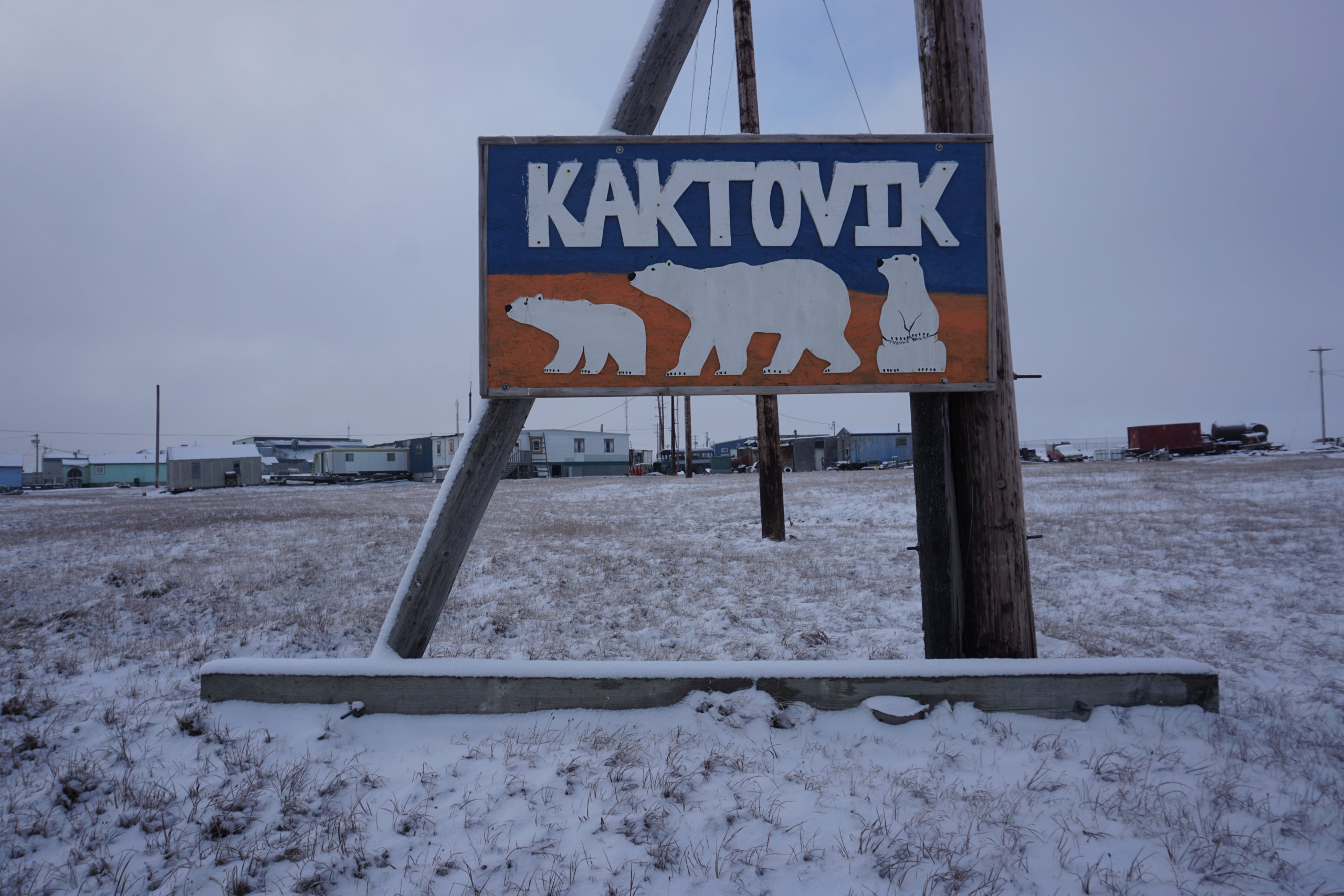Drilling advocates continue to plan for seismic surveys in Alaska’s Arctic refuge
Kaktovik Inupiat Corp. says its plans to survey the refuge this winter were unfairly blocked by the Interior Department.

Supporters of oil development in the Arctic National Wildlife Refuge say they are pressing on with plans to conduct seismic surveys in the area to help guide exploration drilling, even though the Biden administration has temporarily halted those and other exploration activities.
The Kaktovik Inupiat Corp., the Alaska Native-owned corporation that applied for permits to conduct seismic survey this winter of the refuge’s coastal plan, accused the Biden Interior Department of unfairly blocking those plans and forcing a cancelation this winter.
The Interior Department said the company failed to identify polar bear dens in the survey area, a key requirement. KIC fired back, saying the U.S. Fish and Wildlife Service had denied the company the permit for flights to map the dens.
“We expect an apology from the U.S. Fish and Wildlife Service, the U.S. Bureau of Land Management and the U.S. Department of the Interior,” Matthew Rexford, KIC’s president, said in a statement Feb. 25 statement. “We also fully expect the USFWS to retract their misstatements publicly, and at the end of the day, to do their job.”
KIC had applied for permission to survey 352,416 acres on the coastal plain, including about 92,000 acres of land that it owns. The Alaska Congressional delegation, weighing in on KIC’s behalf, pointed that out in a statement that urged the Fish and Wildlife Service to reverse its position.
“We are appalled to learn that the U.S. Fish and Wildlife Service blatantly misled Kaktovik Iñupiat Corporation with regard to KIC’s application to conduct a seismic survey on their own lands,” the delegation’s Feb. 26 statement said. “For the USFWS to then cast blame on KIC for failing to perform an activity that they were not given explicit authorization to complete is a clear indication that the USFWS had no intention of allowing this process to continue. It is imperative that the USFWS expeditiously correct this issue.”
Melissa Schwartz, an Interior spokeswoman, declined to comment on the KIC claims.
There was apparently overwhelming public interest in the KIC’s seismic-survey plan.
In a Feb. 19 letter to KIC, the Fish and Wildlife Service said it had received more than 6 million public comments on the plan, too many to properly review on KIC’s desired timeline for the receipt of an incidental harassment authorization allowing accidental disturbances of polar bears.
KIC is not the only organization seeking to conduct seismic surveys on the refuge coastal plain.
The Alaska Industrial Development and Export Authority, the state economic development agency that was the major bidder in the Jan. 6 sale held by the outgoing Trump administration, will be seeking permission for such surveys, the executive director told an Alaska legislative committee on Monday.
Even though there is a moratorium on exploration, AIDEA is advancing toward a seismic-survey plan, executive director Alan Weitzner told the Senate Finance Committee of the Alaska State Legislature. That work is intended to help attract investment partners, Weitzner said.
“We are looking at the full requirements for filing a plan with the BLM in updating the geotechnical studies so we know what the resource, or have at least some boundaries on the resource that we can define and then have a more advanced conversation with potential partners for co-investment on the field development,” he told the committee.
Responding to a question about any interest from oil companies or financial institutions, Weitzner said it was too early to report any results.
“It’s a bit preliminary to give that full feedback on the interest that we’re receiving principally because we have not been actively discussing or promoting the co-investment at this stage,” he said.
AIDEA submitted bids on 11 of the 22 tracts offered in the Jan. 6 ANWR lease plan, and it was the high bidder for nine of those tracts. Ultimately, seven of the tracts were transferred to AIDEA just before President Biden — an opponent of ANWR oil development — was inaugurated
The ANWR lease sale drew no bids from major oil companies.
Even as efforts by KIC and AIDEA move forward, there is also momentum for blocking any oil development in the refuge.
President Biden and Canadian Prime Minister Justin Trudeau, in a wide-ranging joint statement released after their Feb. 23 meeting, pledged to protect the refuge and the U.S.-Canada caribou herd that uses it. The two leaders “recognized the ecological importance of the Arctic National Wildlife Refuge,” the statement said. “In particular, they agreed to work together to help safeguard the Porcupine caribou herd calving grounds that are invaluable to the Gwich’in and Inuvialuit peoples’ culture and subsistence.”
Meanwhile, a bill pending in the U.S. House of Representatives would abolish the mandate for Arctic refuge leasing. The bill, introduced on Feb. 4, would amend the 2017 tax act to strip out the refuge leasing provisions that were inserted there under Murkowski’s guidance.
Several major banks have adopted policies precluding any financing of Arctic refuge oil development, and more recently, major insurance companies have joined in that campaign.
The latest to announce such a policy is AXIS Capital, which in January became the first North American insurer to commit to avoiding any underwriting of Arctic refuge development. Previously, two European insurers announced similar policies, according to the Gwich’in Steering Committee, the umbrella organization for Gwich’in tribes in Alaska and Canada that oppose drilling.